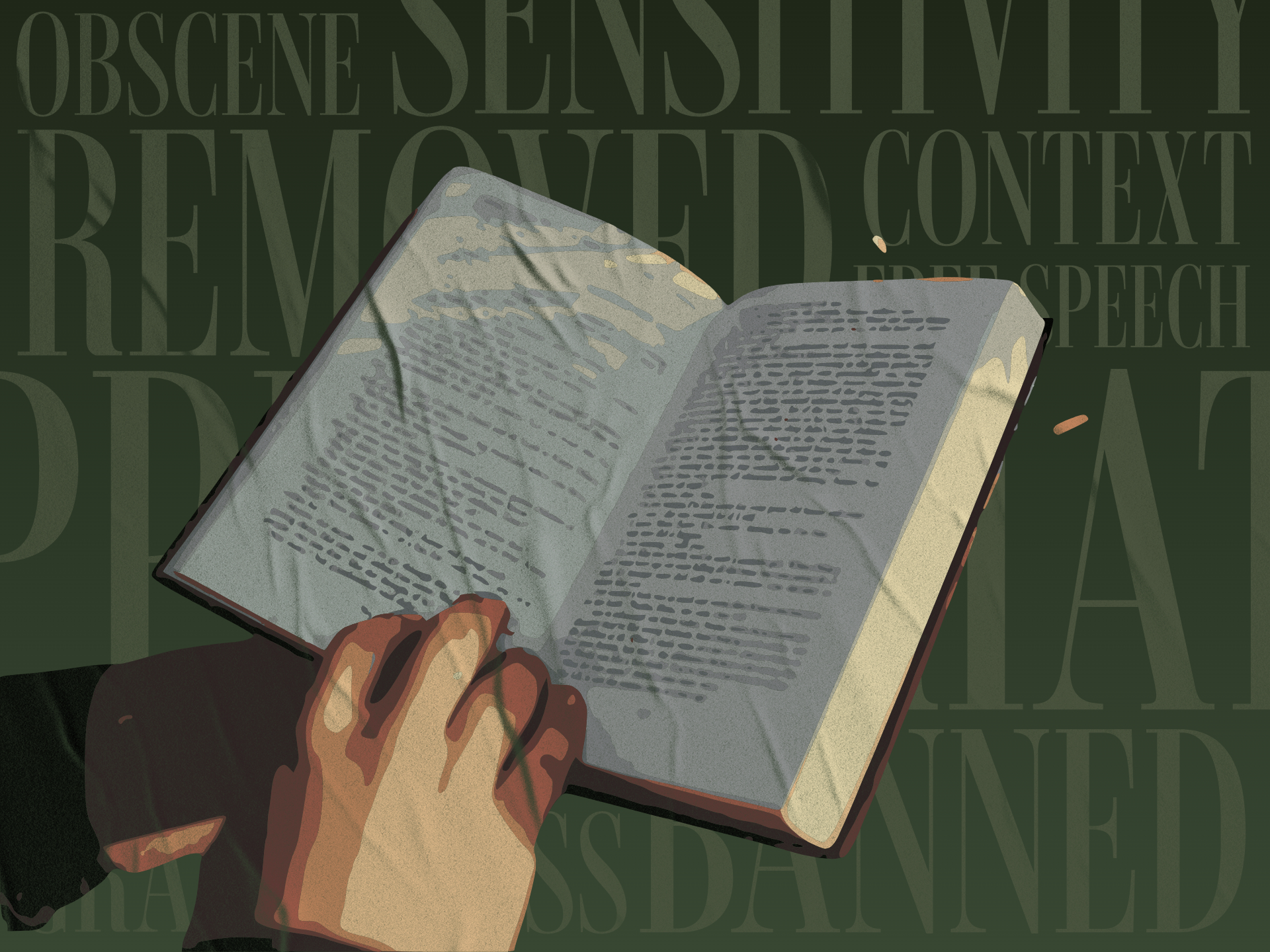Eight books were temporarily removed from Wentzville district libraries over concerns of explicit sexual content during the 2021-22 school year. Since then a slew of changes have occurred.
The list of initially removed books includes…
- “All Boys Aren’t Blue” by George Matthew Johnson
- “Lawn Boy” by Jonathan Evison
- “The Bluest Eye” by Toni Morrison
- “Heavy: An American Memoir” by Kiese Laymon
- “Invisible Girl: A Novel” by Lisa Jewell
- “Gabi, A Girl In Pieces” by Isabel Quintero
- “Modern Romance: An Investigation” by Aziz Ansari and Eric Klinenberg
- “Fun Home: A Family Tragicomic” by Alison Bechdel
For context, there are essentially two procedures for removing books from the library according to district policy. Policy and Regulation 6310 states that a librarian is able to remove a book if they believe it either exceeds age sensitivity, contains unreliable information, or is damaged beyond repair. Additionally, a book may be removed in the event of a written or formal complaint being submitted to the school. If any of those scenarios were to take place the material would be reviewed by a school board related committee and/or an administrator, such as the superintendent, and a decision would be made as to whether or not the material should return or stay removed.
When asked about the received complaints, school librarian Mrs. Playle suggested that they were coming from non-local third parties, perhaps as a political move. She said, “I saw some forms from the last two years. They had clearly just copied and pasted. The forms were not even filled out completely. It wasn’t as if a local person was concerned about this.”
Following a review of the material, seven of the eight books were allowed to return to library shelves. “Fun Home” was the only book that was kept out of school libraries permanently.
The initial removals were met with strong opposition, with many believing them to be an attempt at silencing certain ideas and minority voices. Additionally, many suspected the complaints to be uninformed, based on out-of-context excerpts. Those who opposed the removals maintained that the books, while possibly jarring at points, were not problematic if read in full.
“They had not read the whole book,” said Mrs. Playle. “They just pulled out parts. You can take any book, pull out parts, and be offended by something.”
Two of Wentzville’s own students went so far as to take legal action in 2022, suing the district on the grounds of civil rights violations. They were assisted by the American Civil Liberties Union of Missouri, who filed the suit on behalf of the students and their families.
“This just isn’t any old book banning, as happens from time to time, where school districts disagree with the ideology of a book,” said Tony Rothert, director of advocacy for the ACLU of Missouri. “Here Wentzville has targeted and removed books that are from the perspective and viewpoint of racial or sexual minorities.”
The student lawsuit specifically targeted Wentzville’s procedure for addressing concerns about material in the library. The ACLU argued that the policy made it too easy to get books banned. The federal court denied the injunction, however, and even questioned the notion that the district had actually banned anything.
In their ruling, the court wrote, “The District’s policy does not ban the District’s students from reading the books at issue here. Nor does it ban students from acquiring the books or lending the books to others. Students may borrow the books from the public library or from a friend or neighbor. They likewise are free to purchase the books. The policy does not even ban students from bringing the books at issue to the District’s schools. Nor does it ban students from discussing the books at school during their free time or encouraging others to read them. It simply does not ban the books, or anything for that matter. So, the ‘overwrought rhetoric about book banning has no place’ in this case.”
Many of the people and organizations who support the books being removed maintain that their only concern is sexually explicit or graphically violent material in school libraries. For them, this issue doesn’t extend to libraries or stores outside of school buildings, and it has nothing to do with anyone’s ideas or minority status.
Tina Descovich, co-founder of Moms for Liberty, said, “This has nothing to do with whether it’s male and male, female and female, or male and female. [The books] are obscene and they’re pornographic.”
It seems that for the most part, neither side of this issue is in support of suppressing free-speech, nor are they against curating library materials with students in mind. For the most part, both sides agree that there is a line to be drawn between discussing harsh or mature subjects and being outright obscene. The difference is where each side draws said line.
In regard to making this distinction, Mrs. Playle said, “You have to take into account the graphicness or how explicit it is. It’s not as much the words themselves as much as it is how books describe things.”
While not much has happened recently with respect to local book removals, both pro and anti book removal organizations are still active, and will be for the foreseeable future. As we continue to navigate this issue we’ll be forced to grapple with difficult questions. On what basis are we making these moral decisions? How can we determine age sensitivity with such varied maturity levels in the student body? How much can context really excuse?



